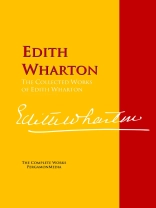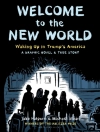This comprehensive e Book presents significant works of this famous and brilliant writer in one ebook — estimated 9770 pages easy-to-read and easy-to-navigate:
• Ethan Frome
• The Age of Innocence
• The House of Mirth
• Summer
• Short Stories for English Courses
• The Custom of the Country
• The Decoration of Houses and Ogden Codman
• Xingu
• Tales of Men and Ghosts
• A Parody Outline of History Donald Ogden Stewart
• Poems of American Patriotism
• The Reef
• In Morocco
• The Descent of Man and Other Stories
• The Touchstone
• Age of Innocence
• The Early Short Fiction of
• The Greater Inclination
• Kerfol
• The Glimpses of the Moon
• Bunner Sisters
• The Hermit and the Wild Woman, and Other Stories
• Autres Temps.
• The Valley of Decision
• The Fruit of the Tree
• Fighting France, from Dunkerque to Belfort
• Crucial Instances
• Madame de Treymes
• The Choice
• Madame de Treymes
• Sanctuary
• Coming Home
• In Morocco
• The Triumph Of Night
• The Marne
• The Age of Innocence
• Artemis to Actaeon and Other Verses
• The House of Mirth
• The Long Run
• Artemis to Actaeon, and Other Verses
• etc.
Edith Wharton
The Collected Works of Edith Wharton [EPUB ebook]
PergamonMedia
The Collected Works of Edith Wharton [EPUB ebook]
PergamonMedia
Купите эту электронную книгу и получите еще одну БЕСПЛАТНО!
язык английский ● Формат EPUB ● страницы 9770 ● ISBN 9783956701382 ● Размер файла 4.0 MB ● издатель PergamonMedia ● опубликованный 2015 ● Издание 1 ● Загружаемые 24 месяцы ● валюта EUR ● Код товара 4109127 ● Защита от копирования Социальный DRM












